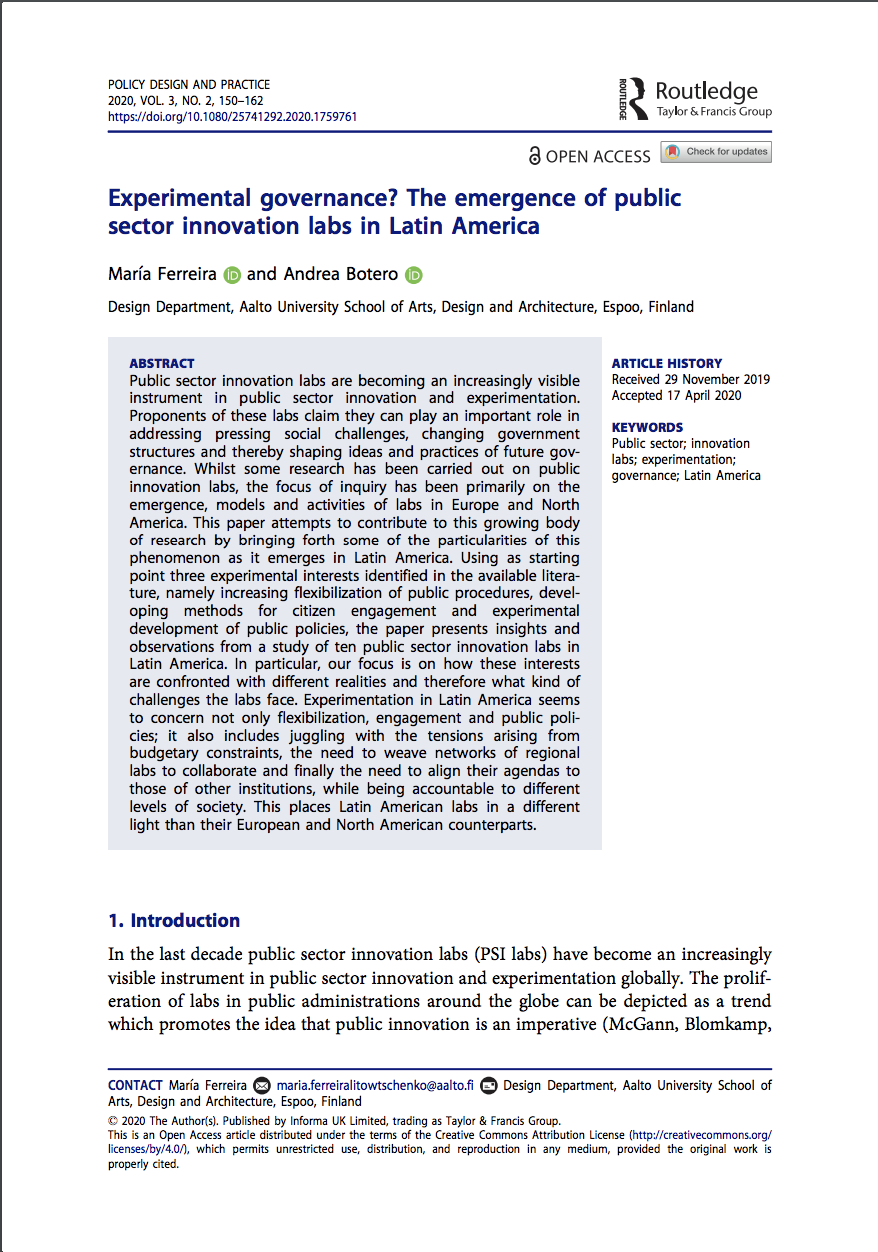Authors: Maria Ferreira and Andrea Botero
Abstract
Public sector innovation labs are becoming an increasingly visible instrument in public sector innovation and experimentation. Proponents of these labs claim they can play an important role in addressing pressing social challenges, changing government structures and thereby shaping ideas and practices of future governance. Whilst some research has been carried out on public innovation labs, the focus of inquiry has been primarily on the emergence, models and activities of labs in Europe and North America. This paper attempts to contribute to this growing body of research by bringing forth some of the particularities of this phenomenon as it emerges in Latin America. Using as starting point three experimental interests identified in the available literature, namely increasing flexibilization of public procedures, developing methods for citizen engagement and experimental development of public policies, the paper presents insights and observations from a study of ten public sector innovation labs in Latin America. In particular, our focus is on how these interests are confronted with different realities and therefore what kind of challenges the labs face. Experimentation in Latin America seems to concern not only flexibilization, engagement and public policies; it also includes juggling with the tensions arising from budgetary constraints, the need to weave networks of regional labs to collaborate and finally the need to align their agendas to those of other institutions, while being accountable to different levels of society. This places Latin American labs in a different light than their European and North American counterparts.
